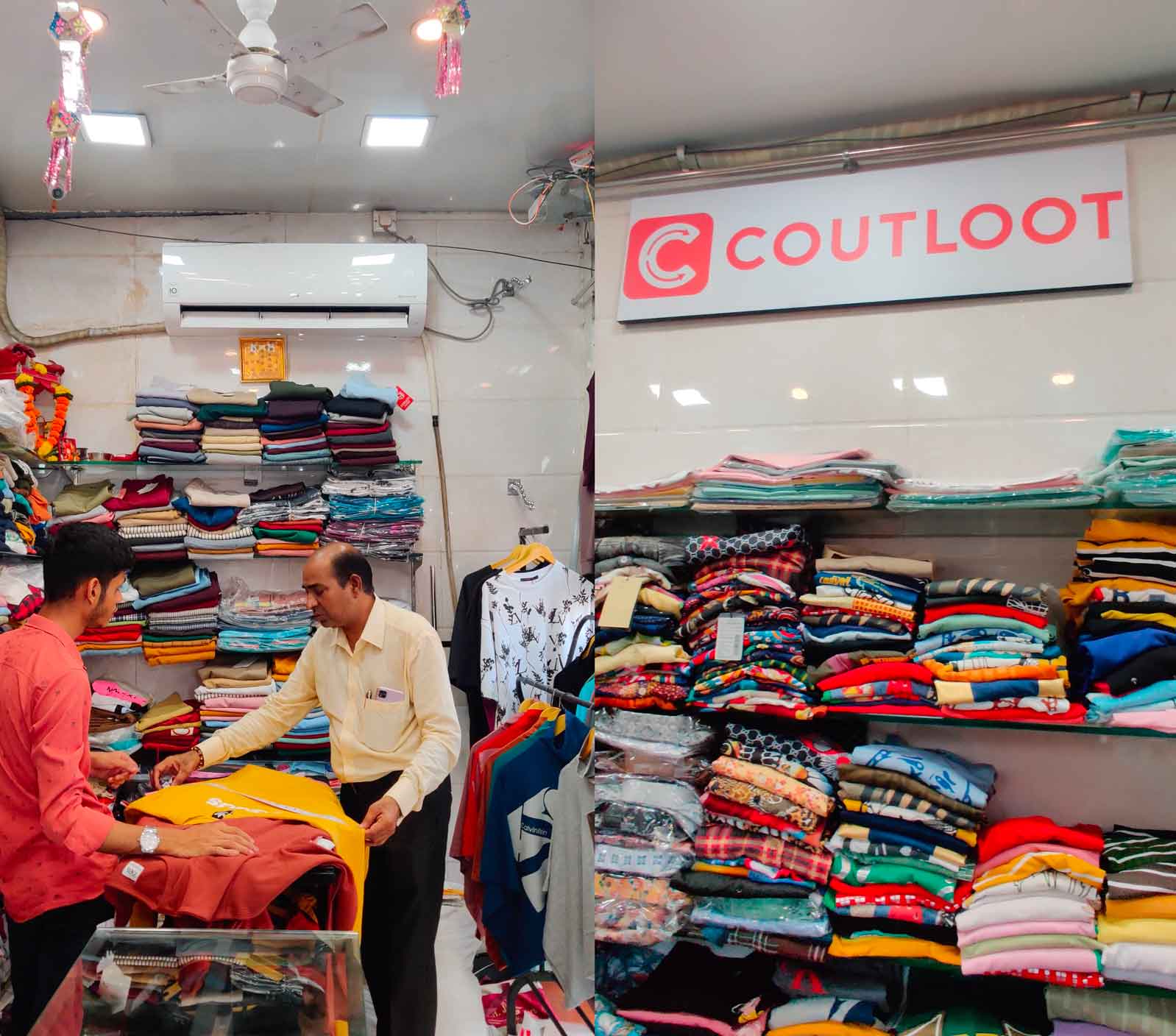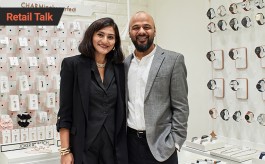‘One cannot understand the Indian market sitting in air-conditioned city offices’
By N Jayalakshmi | June 28, 2023
Small retailers in India are inspiring newer business models for companies who can offer them technology and other support systems. In this exclusive interaction, Jasmeet Thind, Co-founder of CoutLoot, an aggregator platform for non-kirana retailers, talks about the company’s business model, market opportunities and more.
 The retail eco-system in India is expanding in dynamic new ways. Small retailers, always an integral part of this dynamic eco-system, have gained more significance today, presenting both opportunities and challenges for tech-driven solution and service providers. The latter see the unorganized retail segment as something that can be empowered with the right tech-backed system in place.
The retail eco-system in India is expanding in dynamic new ways. Small retailers, always an integral part of this dynamic eco-system, have gained more significance today, presenting both opportunities and challenges for tech-driven solution and service providers. The latter see the unorganized retail segment as something that can be empowered with the right tech-backed system in place.
Offline-online service partner
For CoutLoot, positioned as India’s first and largest online non-grocery retail aggregator, supporting these small retailers seemed like a promising business model. CoutLoot essentially identifies non-grocery retailers across categories including fast fashion, home décor, electronics, accessories, etc., primarily in the North region at present, and offers them an online platform with wider reach to customers. It also seeks to bring down their procurement cost by offering a streamlined supply chain. That’s not all. The company offers branding and other services to these retailers in their offline retail space too.
As Jasmeet Thind, Co-founder of CoutLoot, tells Retail4Growth in this exclusive interaction, “There are close to 20 million non-kirana retailers in India, and less than 2% have access to marketplaces. So we wanted to create a marketplace and SAS platform for them so they could have easy access to buyers all over the country.” Jasmeet informs that the company has on-boarded close to 11 lakh shops on their online platform and serves close to 8000 shops on a monthly basis in the offline space.
CoutLoot recently opened its first branded store at Malad in Mumbai and plans to open 50 stores by the end of this year across UP, Maharashtra, Gujarat and Delhi.
Talking about their offline services, Jasmeet explains, “When we got these retailers online, we realized that they would still have to drive their sales offline, as that was their bread and butter. But the main challenge they face offline is that they have no distinct identity, all shops look the same. So we converted them into CoutLoot branded outlets. Essentially we are sprucing up their shop space and deploying technology for efficiency in processes like billing, product assortment, database creation, etc. We also offer them marketing services to drive more footfalls. So while the shops are owned by the shopkeepers, we partner with them as a service company.”
Some key needs for the small retailers identified by CoutLoot include:
- Lower procurement cost and better cash flow
- Organised supply chain
- Wider customer access
- Streamlined, tech driven store operations including product assortment, billing, etc
- Better store presence and distinct brand identity
These were the needs that CoutLoot sought to address for them.

Catering to a complex market
Further explaining the genesis of CoutLoot and the factors that drove it, Jasmeet says, “When I used to work with FMCG majors, I realised that sitting in air conditioned offices in Mumbai, Delhi, Bangalore or Chennai, we could never understand the real Indian market. India is a vast and complex market. Consumption patterns change within a distance of 100 km and culture determines much of it. What is sold in one region will not sell in another. You have to cut the market into pieces and look at it through microscopic lens.”
Armed with this perspective, CoutLoot set about drawing up its business plan. There were challenges of course. After all, penetrating the traditional, unorganized retail segment that is used to a certain way of working is not easy.
Jasmeet says, talking about it, “Well the good thing is that many of them are second generation entrepreneurs who are not averse to using technology. Many of them have access to smartphones and free internet. They are digitally savvy, but they don’t have the right infrastructure and that’s what we are providing to them.”
He adds, addressing the question of how challenging it was to onboard them, “Since we had built a long standing relationship with many of them through our online marketplace, they knew how we worked. From then on, it was easier to build the relationship. We showed them how by using data and technology we could drive scale of their offline business as well.”
Jasmeet adds that in the process, the company is also trying to create local brands by partnering with local manufacturers to supply to these small retailers. CoutLoot indeed works with other solution providers and third-party vendors in the retail space to spruce up the store space for the small retailers although, as he admits, they have to work within the limitations of the existing store space.
The OYO Model
Jasmeet brings up the OYO model, which CoutLoot aims to apply to some extent in the retail space, “Like OYO does in the hospitality space, we offer our branding to small retailers’ space. One of the reasons OYO works is because of the trust factor it has been able to generate. People go to a hotel because of that branding. Essentially,we want to create that trust based model for small store owners who can use the CoutLoot brand to drive more sales. But we are very asset light and we work with specific deliverables. We give the retailers branding, promote their store, replenish their stock and offer them technology for their store management, all for a fee. And we get into it with a proper agreement. Everything is transparent; the retailer knows what he is getting into and we also knowhow much we can expect from a particular shop.” He sums up, “We are not trying to sell a story, we are trying to sell results.”









Comments